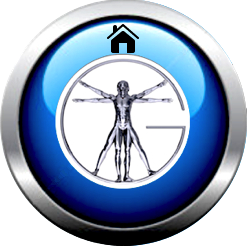An anal fissure is a small tear or cut in the skin around the anus. They typically cause extreme pain during bowel movements and often bleed. Fissures are common and often confused with other causes of pain and bleeding, such as hemorrhoids. Fissures are believed to be caused by injury/trauma to the anal canal such as when passing a large stool that stretches the anal canal, are constipated and try to pass a hard stool, or have repeated bouts of diarrhea.
Because many people get constipated or have diarrhea without getting anal fissures, many believe there is some other cause of anal fissures. Some people may have excessive tension in the two muscular rings (sphincters) controlling the anus. The external anal sphincter is under your conscious control. But the internal anal sphincter is not under your control. This muscle remains under pressure, or tension, all of the time. A fissure may develop if the internal sphincter's resting pressure becomes too high, causing spasm and reducing blood flow to the anus. This high resting pressure can also keep a fissure from healing.
An acute fissure is managed with non-operative treatments and over 90% will heal without surgery. Bowel habits are improved with a high fiber diet, bulking agents (fiber supplements), stool softeners, and plenty of fluids to avoid constipation and promote the passage of soft stools. Warm baths for 10-20 minutes several times each day are soothing and promote relaxation of the anal muscles. Occasionally, special medicated creams may be recommended.
If you have an anal fissure that has not healed after 6 weeks, it is considered a long-term problem (chronic). Surgery may be necessary for fissures that do not heal with conservative treatment.
LATERAL INTERNAL SPHINCTEROTOMY - consist of cutting a portion of the internal anal sphincter muscle. This helps the fissure to heal by decreasing pain and spasm. Cutting this muscle rarely interferes with the ability to control bowel movements and can usually be performed without an overnight hospital stay.
PETE GARCIA M.D.
GENERAL VASCULAR
&
MINIMALLY INVASIVE SURGERY
Board Certified & Practicing Medicine for Over 20 Years


